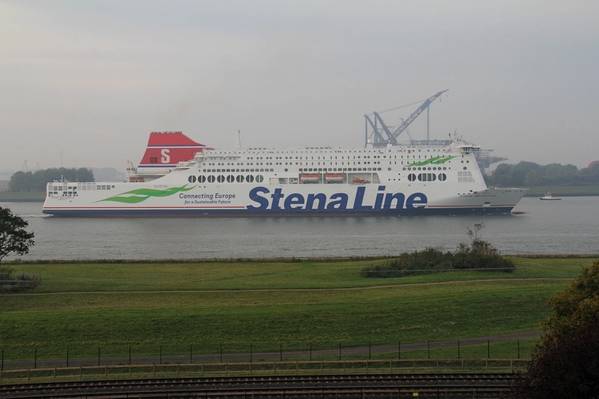
Stena Line has partnered with Hitachi’s European subsidiary to implement onboard artificial intelligence (AI) technologies engineered to minimize the shipping company’s fuel consumption costs and environmental impact.
In recent years, Stena Line has embarked on a number of projects to reduce its environmental footprint, including launching the world's first methanol-powered ferry and connecting its ships to shore power when in port. Between 2013-2016, the company slashed its fuel consumption by 6.5 percent and carbon dioxide emissions by 6.2 percent per nautical mile.
Now, in an effort to make its operations even more fuel efficient, Stena Line will expand its integration of smart technologies as more firms look to leverage the advantages of digitalization in the maritime sector.
The project will see a team of experts from across Hitachi’s business units work in close cooperation with Stena Line to review the ferry company’s existing digital architecture. Cutting-edge AI technologies will identify the key factors causing higher fuel consumption and enable Hitachi to advise how to make operations more efficient.
“Digitalization plays a key role in helping industries such as shipping optimize their operations for both financial performance and environmental impact,” said Hicham Abdessamad, Chief Executive Officer, Hitachi Global Digital Holdings Corporation, Corporate Officer of Hitachi, Ltd. “We are engaged with Stena Line on a number of strategic cocreation initiatives, and we see this as an important next step in providing digital expertise to help them achieve positive business and societal outcomes.”
Rune Kleiberg, Head of digital strategy, Stena Line, added, “With a structured approach and by taking continuous initiatives, the aim is for Stena Line to become a leader in sustainable shipping. We are pleased to have Hitachi on board to help us in our cognitive journey to improve fleet operation across ship and shore, providing new capabilities for safer and more sustainable ferry journeys, as well as helping improve operational efficiencies and overall vessel performance.”


